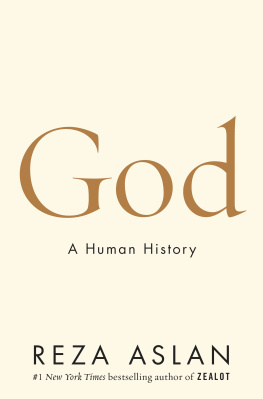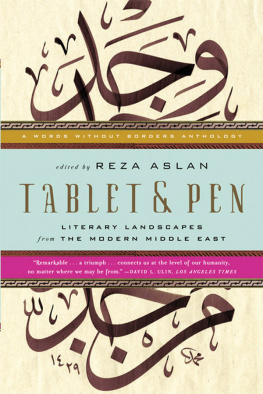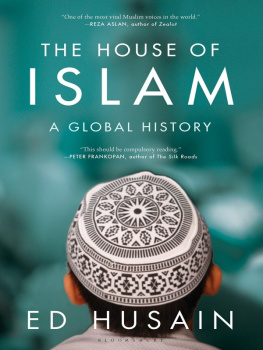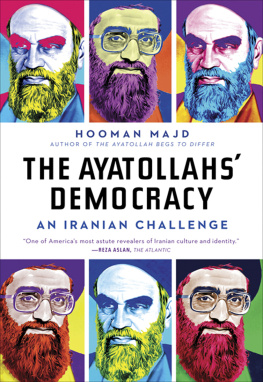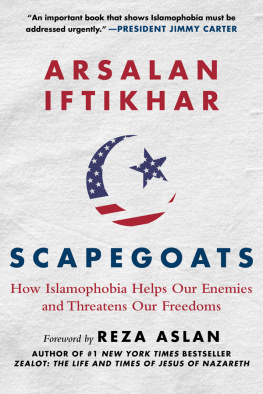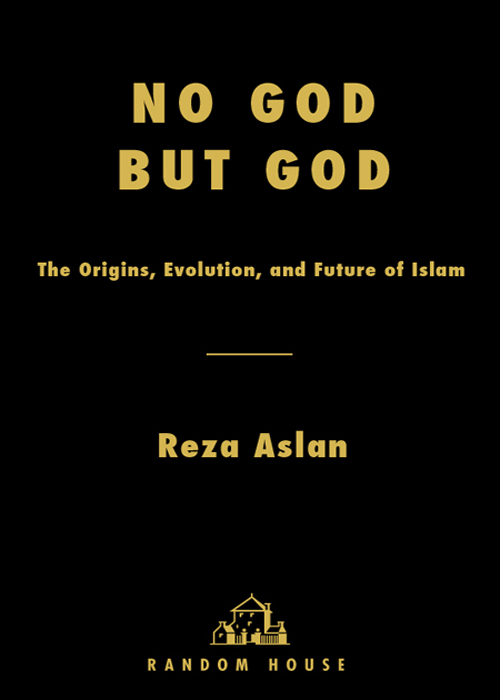
Contents

No god but God
The Origins, Evolution, and Future of Islam
REZA ASLAN

Random House
New York
For my mother, Soheyla,
and my father, Hassan
Chronology of Key Events

| Birth of the Prophet Muhammad |
| Muhammad receives first Revelation at Mt. Hira |
| Muslim emigration (Hijra) to Yathrib (later called Medina) |
| Battle of Badr against Mecca and the Quraysh |
| Battle of Uhud |
| Battle of the Trench |
| Treaty of Hudaybiyyah between Medina and Mecca |
| Muhammads victory over the Quraysh and the Muslim occupation of Mecca |
| Muhammad dies |
| 632634 | Caliphate of Abu Bakr |
| 634644 | Caliphate of Umar ibn al-Khattab |
| 644656 | Caliphate of Uthman ibn Affan |
| 656661 | Caliphate of Ali ibn Abi Talib, considered the first Imam of Shiism |
| Husayn ibn Ali, grandson of the Prophet, killed at Karbala |
| 661750 | The Umayyad Dynasty |
| 750850 | The Abassid Dynasty |
| Last Umayyad prince, Abd al-Rahman, establishes rival Caliphate in Spain |
| The occultation of the Twelfth Imam, or the Mahdi |
| 9341062 | Buyid Dynasty rules western Iran, Iraq, and Mesopotamia |
| 9691171 | Fatimid Dynasty rules North Africa, Egypt, and Syria |
| 9771186 | Ghaznavid Dynasty rules Khurasan, Afghanistan, and northern India |
| 1095 | Christian Crusades launched by Pope Urban II |
| 12501517 | Mamluk Dynasty rules Egypt and Syria |
| 12811924 | The Ottoman Empire |
| 15011725 | Safavid Dynasty rules Iran |
| 15201857 | Mughal Dynasty rules India |
| 1857 | The Indian Revolt |
| 1924 | Creation of secular Turkish republic and the end of the Ottoman Caliphate |
| 1925 | Beginning of Pahlavi Dynasty in Iran |
| 1928 | The Society of Muslim Brothers founded by Hasan al-Banna in Egypt |
| 1932 | Kingdom of Saudi Arabia established |
| 1947 | Pakistan founded as first Islamic state |
| 1948 | State of Israel established |
| 1952 | Free Officers revolt in Egypt, led by Gamal Abd al-Nasser |
| 1979 | The Iranian Revolution |
| 199091 | The Persian Gulf War; al-Qaeda formed |
| 2001 | Al-Qaeda attack on New York and Washington |
Authors Note

While there is a widely recognized system for the transliteration of Arabic into English, along with specific diacritical markings to indicate long and short vowels, I have endeavored, for the sake of clarity and ease, to present all Arabic words in their simplest and most recognizable English rendering. The Arabic letter hamza, which is rarely vocalized, will occasionally be marked with an apostrophe. The letter ainbest pronounced as a glottal stopwill be marked with a reverse apostrophe, as in the word bayah, meaning oath. Further, rather than pluralizing Arabic nouns according to their proper grammatical rules, I will simply add an s: thus, Kahins, instead of Kuhhan.
Unless otherwise indicated, all translations of the Quran are my own.
Acknowledgments

Thank you, Mom and Dad, for never doubting me; Catherine Bell, for getting me started; Frank Conroy, for giving me a shot; Elyse Cheney, for finding me; Daniel Menaker, for trusting me; Amanda Fortini, for fixing me; my teachers, for challenging me; and Ian Werrett, for absolutely everything else.
Prologue
THE CLASH OF MONOTHEISMS

M IDNIGHT, AND FIVE hours to Marrakech. I have always had trouble sleeping on trains. There is something about the unrelenting rhythm and hum of the wheels as they roll over the tracks that always keeps me awake. It is like a distant melody thats too loud to ignore. Not even the darkness that inundates the compartments at night seems to help. It is worse at night, when the stars are the only lights visible in the vast, muted desert whizzing by my window.
This is an unfortunate quirk, because the best way to travel by train through Morocco is asleep. The trains are flooded with illegal faux guides, who shift from cabin to cabin searching for tourists with whom to share their recommendations for the best restaurants, the cheapest hotels, the cleanest women. The faux guides in Morocco speak half a dozen languages, which makes them difficult to ignore. Usually, my olive skin, thick brows, and black hair keep them at bay. But the only way to avoid them completely is to be asleep, so that they have no choice but to move on to the next beleaguered traveler.
That is precisely what I thought was taking place in the compartment next to mine when I heard raised voices. It was an argument between what I assumed was a faux guide and a reluctant tourist. I could hear an inexorable cackle of Arabic spoken too quickly for me to understand, interrupted by the occasional piqued responses of an American.
I had witnessed this type of exchange before: in grands-taxis, at the bazaar, too often on the trains. In my few months in Morocco, Id become accustomed to the abrupt fury of the locals, which can burst into a conversation like a clap of thunder, thenas you brace for the stormdissolve just as quickly into a grumble and a friendly pat on the back.
The voices next door grew louder, and now I thought I grasped the matter. It wasnt a faux guide at all. Someone was being chastised. It was difficult to tell, but I recognized the garbled Berber dialect the authorities sometimes use when they want to intimidate foreigners. The American kept saying Wait a minute, then, Parlez-vous anglais? Parlez-vous franais? The Moroccan, I could tell, was demanding their passports.
Curious, I stood and stepped quietly over the knees of the snoring businessman slumped next to me. I slid open the door just enough to squeeze through and walked into the corridor. As my eyes adjusted to the light, I glimpsed the familiar red-and-black conductors uniform flashing across the glass door of the adjoining compartment. I knocked lightly and entered without waiting for a response.
Next page

